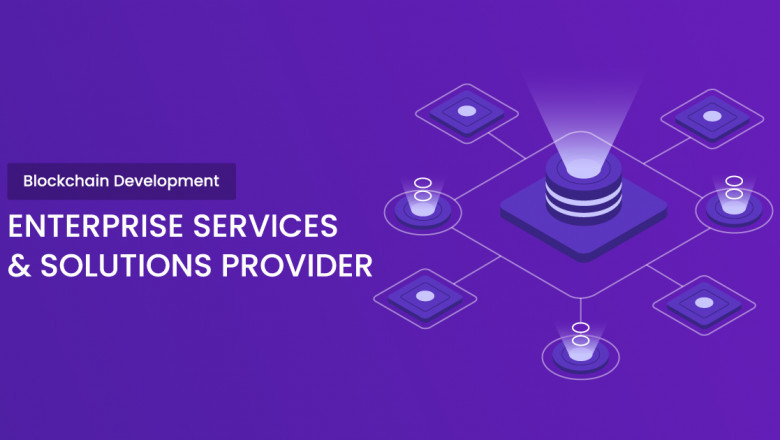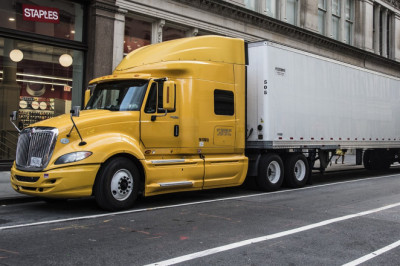views

The basic principle of Blockchain is to generate freedom. Yes, this is undoubtedly the word that best represents this technology and digital currencies. This freedom will, in the near future, drive innovation and solve the greatest number and diversity of problems with more efficient solutions.
It is important to understand that Blockchain is not bitcoin, but that bitcoin would be nothing without it. This is a system whose reason for existing is decentralization, that is, the end of the central power of something like, for example, the end of the need to use notaries to register a document. And, at the same time, it allows the verification of data by any individual, which is immutable, which establishes a relationship of independence and security.
And, contrary to what one might imagine, the blockchain development does not only work for financial transactions, but for the processing of any type of data. It is a disruptive technology that breaks technological, economic, philosophical and social paradigms. And below you will see 4 fields of activity in which he is already able to bring a total revolution:
In storing and validating information
As far as technological disruption is concerned, blockchain changes the control of information. Today, the data is all centralized on a few platforms, such as Google and Amazon, which host content from giants such as Netflix, for example, in the cloud. If the system goes down, stops working or something like that happens, the service of the movie and series provider will disappear. If data storage was done on the blockchain, problems like this would not exist, as the technology allows storing a copy of the entire network in a distributed and decentralized way around the world. This is not to say that they all have permission to access the content. Security is guaranteed through an encrypted access address that is generated by the owner and that has no copy on centralized servers, but is safe in the protocol itself, ensuring that only the owner has it, that is, there would only be the loss of the stored content. if all the machines that have the system stopped working or the owner of the encrypted key would be lost, which is something with infinitely lower chances of happening than centralized systems having problems.
For companies, this technological aspect is an effective cost-cutting tool, as it is possible to record anything you want on the blockchain to attest to its veracity, such as contracts, intellectual proof, and even business accounting information, as there is proof. of everything that goes into the mechanism, which is transparent and auditable by anyone.
In the way we handle our money
When we talk about economic disruption, the issue resolved by the development of blockchain is, among others, changing how money is handled, as technology gives people back full control of finances. They no longer depend on banking institutions to take care of or transact their assets. Another point is the inflation created by the government through improper money printing. What keeps the value of money stable is trust and, with the lack of control in this regard, there is no way to have that conviction and security. In blockchain, the coins issued are limited, so the system is deflationary, it only changes the value with the fluctuation of their economy, that is, according to the demand, with the demand for buying and selling. The market trend, in view of the natural deflation of the system, is for long-term assets to appreciate in value.
What about financial inclusion? It is related to the possibility that people who do not have credit in the market can, through blockchain and digital currencies, review finances and have the principle of the platform as a financial educator that leaves you free to handle your values the way you want. An example that is even shocking is the way this system works in Africa. In Angola, for example, entrepreneurs want to sell online, but they are not able to do so efficiently because most Angolans do not have access to banks. So, e-commerce works like a delivery hotline: orders are placed online and payment is only made at the time of delivery, in person. With the arrival of blockchain, there was a paradigm shift, as money can be placed in the system and payment can be made online as is normally the case in any other part of the world.
In the way we vote
Another possibility is to place elections for public office within the blockchain. There is distrust by a large part of the population in the current voting system in the country, which is carried out through electronic voting machines, since this model is demonstrably susceptible to fraud. One option would be to bring the election into the blockchain, where it is possible for citizens to have a personal record, vote for a particular candidate without being identified and receive proof of the transaction, which cannot be changed later. This would be a safer and more transparent way, as it allows the process to be audited, since it is an immutable protocol and is distributed in a decentralized way across all network devices.
In the way we sell
Speaking of breaking social and philosophical paradigms, blockchain came to solve problems that not even the government was able to solve, such as the sale of food from small producers to large buyers. Small farmers will be able to control all the production of their plantations, generating traceable certificates of origin, attesting to the quality of their productions, they can also tokenize their crops and negotiate with large buyers on an equal basis, in addition to negotiating dynamically with the whole world, streamlining the promotion of capital to rural areas. Thus, several producers from the same region can together become independent of the system currently established and start selling the crop to one or several buyers, changing the behavior of people and the economy of that place.
In short
The freedom and problem solving that the development of blockchain brings to different day-to-day situations is the answer to the initial question. This opening of thought enables new ways of seeing relationships, of having the imagination without borders to awaken creativity in solving episodes that can be improved safely and transparently through this technological arrangement. Blockchain not only makes us think about how we should store or manipulate data, but it empowers us, leading us to rethink how large companies, banks, social media tools and platforms misuse our data, without our authorization. As a result, we have become more demanding, and companies and future solutions will have to change their view of the central world to everyone's world, taking on the philosophy of decentralization. In this way, we will have a change in relationships and the advancement of technology. With all its robustness, this protocol is undoubtedly part of the fourth industrial revolution, and these are the possibilities that will arise, but that would not exist if the decentralization proposed through the blockchain did not come to light.












